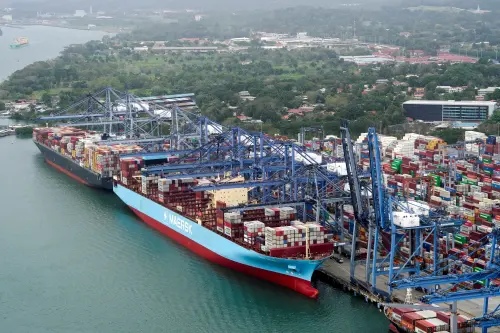On March 12, Reuters reported that he has repeatedly expressed his desire to "take" the Panama Canal without providing specific details on his plan. This critical waterway, situated at the narrowest point of the isthmus between North and South America, holds significant strategic importance globally. In the past year, the canal facilitated 11,240 crossings, transporting over 235.5 million tons of cargo, with more than two-thirds of global trade involving the U.S.
Any disturbance in the operations of the Panama Canal could force ships to take the long route around South America to navigate between the Atlantic and Pacific Oceans. The canal, initially constructed by the U.S. in the early 20th century, was handed over to Panama in 1977 following political pressures and unrest in the region.
Trump has criticized the fees charged to U.S. vessels passing through the canal as "ridiculous" and "very unfair," proposing the U.S. reclaim control due to alleged Chinese influence. However, there is no concrete evidence to support this claim, despite Chinese investments in Panama that some experts suggest could impact canal operations.
Recent developments, including a U.S.-backed group's acquisition of port stakes in Panama, have fueled speculation about the intention to reclaim the canal. Trump's statements to Congress on March 5 implied an ongoing effort to regain control, a notion refuted by the Panamanian President through a social media post.
The Panama Canal is managed by the Panama Canal Authority under the oversight of the Panamanian government, in accordance with the Treaty Concerning the Permanent Neutrality of the Panama Canal. This treaty mandates Panama to levy "just, reasonable and equitable" transit fees to all nations, without specifying enforcement mechanisms.
In case of disputes, both the U.S. and Panama could resort to their domestic courts or the International Court of Justice, although enforcing decisions from the latter proves challenging. Any attempt to seize the canal forcibly would violate international law, as both nations are committed to defending its neutrality.
Regular exercises between the U.S. Southern Command and Panama aim to bolster security measures without scenarios involving a U.S. invasion of Panama, adhering to the agreement not to interfere in Panama's internal affairs or compromise its territorial integrity.
